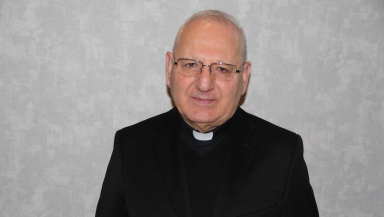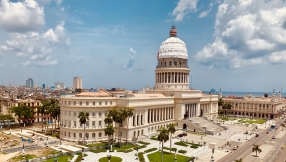
The Iraqi president has revoked a decree recognising a cardinal as the head of the Chaldean Catholic Church.
Cardinal Louis Raphael I Sako told Aid to the Church in Need (ACN) that he had been the victim of a "deliberate and humiliating campaign" and said that the president's actions went "against" Iraq's Christian community.
He expressed his dismay in an open letter to President Abdul Latif Rashid in which he said the decision would put the country's Christians in "danger".
In 2013, a decree was issued by former president Jalal Talabani formally recognising Cardinal Sako's appointment as leader of the Chaldean Church by the Holy See.
President Rashid revoked the decree despite days of protests by Iraqi Christians fearful that the move is an attempt by the government to infringe upon their rights.
Cardinal Sako has said he will leave Baghdad and move to a monastery in Kurdistan in light of the decision but plans to take legal action.
Chaldean Archbishop Bashar Warda of Erbil, in Kurdish northern Iraq, told ACN: "Personally, I believe the approach to revoking the decree was flawed.
"The President of the Republic could have convened a meeting with all the Church leaders to explain the history of these decrees and his decision to retract them.
"Instead, the matter was played out in the media, leading the patriarch to interpret this action as punitive."
The number of Christians in Iraq has falled dramatically in the last 20 years, from 1.5 million in 2003 to around only 150,000 today.













